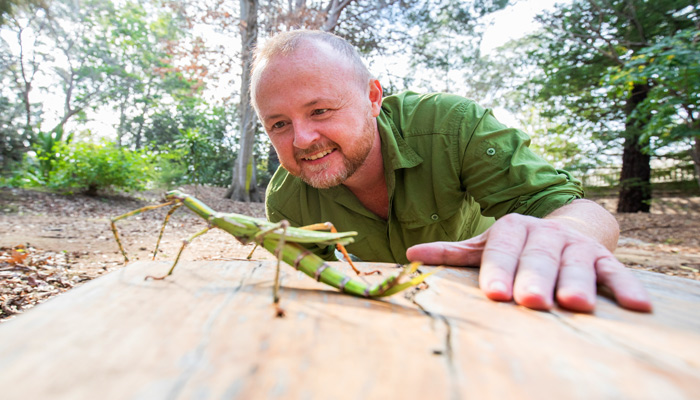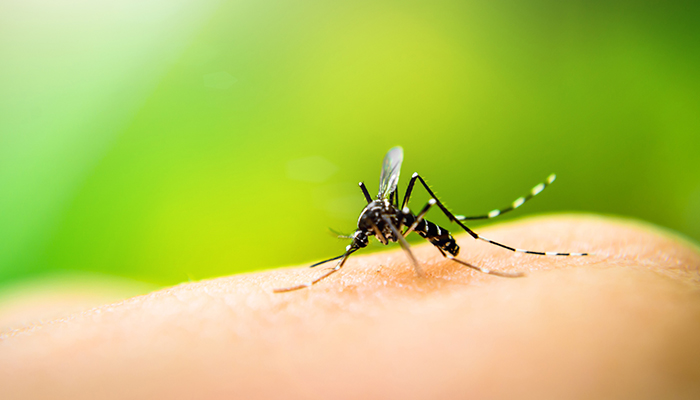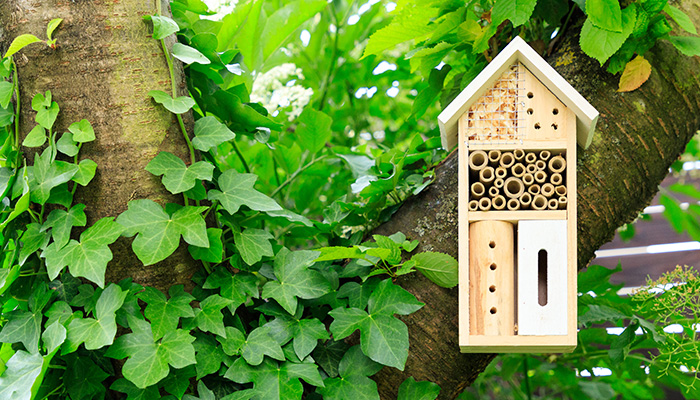Diseases transmitted by mosquitoes kill more than two million people around the world every year, according to the World Health Organisation, making mozzies many times deadlier than the flu.
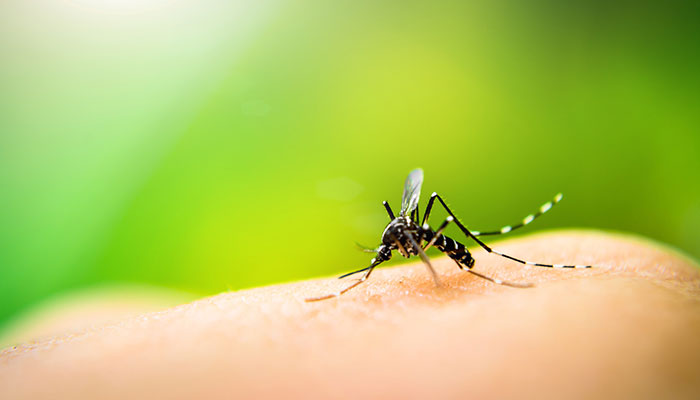
They have also been at a peak in NSW and Queensland, thriving in the cooler, wet early autumn after a hot and dry summer.
We humans, as ever, wish they would just go away, particularly when in Australia they are reponsible for debilitating illness such as Ross River virus. In NSW, 870 cases have been recorded so far this year, compared with 571 for all of 2019.
Personally, I have a love-hate relationship with mosquitoes.
I am completely in awe of their abilities. They have remarkable sensory systems, for instance – in order to find their hosts they are first detecting minute quantities of carbon dioxide from our breath up to 50 metres away. Then following that downstream they pick up on our body odours and body heat before any use of vision to locate a suitable landing spot.
The other side of the coin: I was living in Kenya and came back to Sydney for the 2000 Olympics, because going to those Olympics was something I had always wanted to do. But I missed the entire two weeks of the Games because I was in bed with malaria (from which I fully recovered).
Mosquitoes have found the means of tapping into a rich depository of resources to make offspring, without having to expend the energy to overcome an animal.
It is important to recognise that each organism evolves to exploit a particular niche and mosquitoes fill a very particular one that circumvents the typical struggles with acquiring protein.
There is this availability of all these animals moving around that contain a highly nutritious source of micronutrients rich in amino acids and iron, so essentially mosquitoes have found the means of tapping into a rich depository of resources to make offspring without having to expend the energy to overcome an animal, as a predator normally would.

Although mosquitoes may seem like a general nuisance to us, other animals see them as an important part of their diet. Birds, bats, lizards, amphibians and even fish all eat them, remembering juvenile mosquitoes are aquatic.
And let’s not forget the invertebrates such as the dragonflies and damselflies, predatory beetles and the lucky web-building spider, and not to mention a whole genus of predatory mosquitoes that are specialist predators of other mosquito species.
And while it may not be the case in Australia, there are some countries where mosquitoes make up a lot of the food that’s available. In places like the Arctic, it gets to a certain time of year where mosquitoes are pretty much all that’s there, so many migratory birds will rely on that food resource.
And some animals rely on mosquitoes in a very particular way. For example the fabulously named vampire jumping spider from Kenya that feeds on the blood that mosquitoes have extracted, using the stance of the mosquito and its odour to recognise it has blood on board.
Busting the mozzie myths
There are myths about mosquitoes that need to be dispelled. In general, both male and female mosquitoes are ordinarily vegetarians generally favouring plant matter such as nectar, much like a bee.
Blood feeding, which is only practiced by female mosquitoes, only occurs when the female is preparing a brood because they need to make protein for their eggs, and as stated blood is an excellent source of the amino acid building blocks.
As with cockroaches, the annoyance of a relatively few species gives the whole group a bad rap. There are more than 3500 species of mosquitoes described to date (and there are probably a lot more than that), with Australia contributing more than 300, and of those quite a few of these identified species don’t feed on blood at all.
And furthermore, less than two per cent of mosquito species are known to be disease carrying. In fact, there is generally a tight coupling between a particular species and certain pathogens – it’s not like any mosquito can carry any of the diseases. Malaria, for instance, is carried by only one genus of mosquito.
There is even one species that – ironically – feeds on leeches! Not sure who I am rooting for there.
As humans we also tend to be a little self-absorbed when it comes to nature annoying us, but in reality, mosquitoes, as a group, are generous beasts. It’s true that birds and mammals including our beloved marsupials are the main creatures that we associate with mosquitoes’ blood feeding, but they also feed on lizards, frogs, a variety of insects, and even worms. There is even one species that – ironically – feeds on leeches! Not sure who I am rooting for there.
We also tend to think of mosquitoes as liking hot moist places as we think of mosquitoes and the tropics but that’s a bit misleading because mozzies prefer cool moist areas – which is why they proliferate in cool and damp conditions, as Sydney has been experiencing so far this autumn.

In the tropics, which we strongly associate with these insects, there is a lot of canopy cover, so even though it can be warm and humid it’s actually quite cool under the canopy. If you’re out in the middle of a field in hot sunny conditions with no trees, you are very unlikely to have a mozzie come and get you, unless it’s dawn or dusk when things start to cool down.
The accidental pollinators
Being plant feeders of especially nectar, by the law of probability, mosquitoes are going to hit pollen that will stick to them, which they then carry to another plant.
There is conjecture and debate in the research, however, on how important mosquitoes are as pollinators. Some researchers believe they are incredibly important pollinators, particularly of night-flowering plants, and a few orchid species have been suggested to have a reliance on mosquitoes.
Other researchers believe they are just ‘nectar stealers’ who might incidentally do some pollinating.
Overall, there are not many plants mentioned to date where mosquitoes are important. But given their biomass, if even a fraction of individuals accidentally collect pollen it is likely to provide a valuable service.
A world without mozzies
If you look up the most deadly animals on the planet mosquitoes are always on top as the most lethal creatures in the world, but if you step back a little, it is not actually the mosquitoes that cause the deaths, it is the pathogen inside the blood they collect that causes the illness. And like it or not, mosquitoes facilitate an ecosystem unto themselves with many a parasite relying on the mosquito’s uber-like courier service for their survival – and not all of these are killers.
It is not clear what exactly would happen if we got rid of mosquitoes, but the risk of it being catastrophic is too great to actually attempt eradication.
For a start, mosquitoes make up the majority of the insect biomass in certain regions, so there would be a huge loss in terms of the other fauna that rely on them for food.
There is also the question of pollination, particularly at a time when bees are under threat.
More philosophically, I love the suggestion that mosquitoes protect some ecosystems by reducing human activity – for example, people can’t stay in wetlands and forests for too long because of the mozzies. And cheekily, one might also consider the amount of people that owe their careers to the work of mosquitoes from pest controllers to practitioners alike.
Mosquitoes are also, ironically, inspiring new technologies that serve to reduce our discomfort such as engineers designing microneedles to reduce pain from injections, based on the specifications of a mosquito’s proboscis.
And mosquitoes have their place in the culture, too. I grew up in the Hunter Valley, where the Hexham Swamp mosquitoes are huge, and legendary as a result: just as Coffs Harbour has the Big Banana, there’s a Big Mosquito outside the Hexham Bowling Club, 15 kilometres north-west of Newcastle, known as Ozzie the Mozzie – and frankly I would not like to imagine a world without Ozzie.
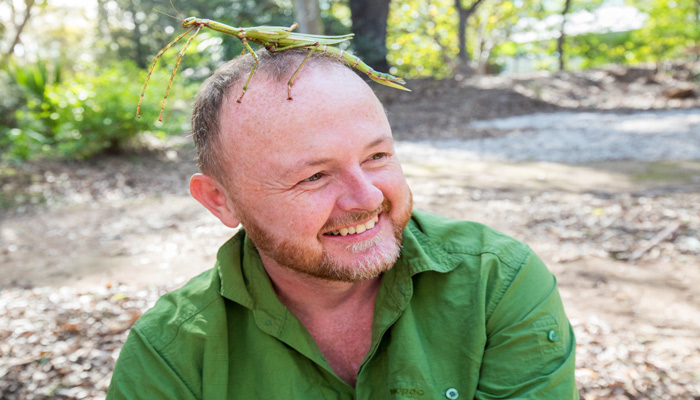
Dr Matthew Bulbert pictured, is an Honorary Senior Lecturer in Macquarie's Department of Biological Sciences

